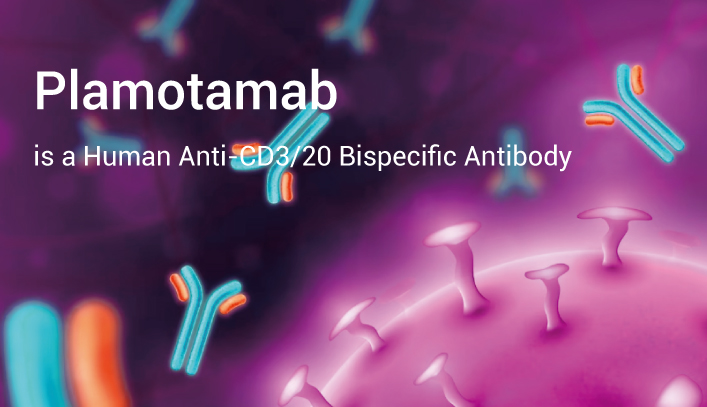Plamotamab (XmAb-13676) is a human bispecific antibody (bsAb) that binds cytotoxic T-cell binding domain CD3 and CD20.
Monoclonal antibodies have emerged as molecules for therapeutic intervention in a variety of disorders, additionally, Monoclonal antibody-based targeted therapy has greatly improved treatment options for patients. However, targeting or neutralizing a single protein is not always sufficiently effective. As a result, this limits the usage of monospecific monoclonal antibodies.
New insights showed that tumors evade immune control. Additionally, tumors have driven innovative therapeutic strategies to eliminate cancer by re-directing immune cells to tumors. Advances in protein engineering technology have generated multiple bispecific antibody (BsAb) formats! Moreover, BsAbs are capable of targeting multiple antigens as a single agent. Approval of two BsAb and three checkpoint-blocking mAbs represents a paradigm shift in the use of antibody constructs. Since BsAbs can directly target immune cells to tumors, drug resistance, and severe adverse effects are much reduced.
Plamotamab is a tumor-targeted antibody that contains both a CD20 binding domain and a CD3 domain.

This antibody recruits cytotoxic T cells to kill CD20+-expressing tumor cells. Besides, Plamotamab induces a mild hematologic reaction (MR), and results in tumor regression in vivo.
Plamotamab induces the killing of endogenous B cells and activation of endogenous CD8+ T cells within human PBMCs in vitro, with an EC50 value of 0.113 nM[2].
What’s more, Plamotamab induces T cell-mediated killing in Raji tumor cells in vitro, with an EC50 value of 0.144 nM[2]. Besides, Plamotamab binds to CD3δ/ε, CD3+ T cells, CD4+ T cells, CD8+ T cells, B cells, and Raji cells. The EC50s are 2.1 nM, 11.78 nM, 10.12 nM, 200.3 nM, and 134.8 nM, respectively[2].
Plamotamab (0.17 mg/kg; i.p.) causes tumor growth suppression in human PBMC-engrafted mouse models containing Raji xenograft. As a result, Plamotamab (0.3 mg/kg; i.p.) leads to cytokine release in cynomolgus monkeys, indicating safety to be improved.[2]
In summary, Plamotamab is a CD3/CD20 antibody for cancer research.
Reference: